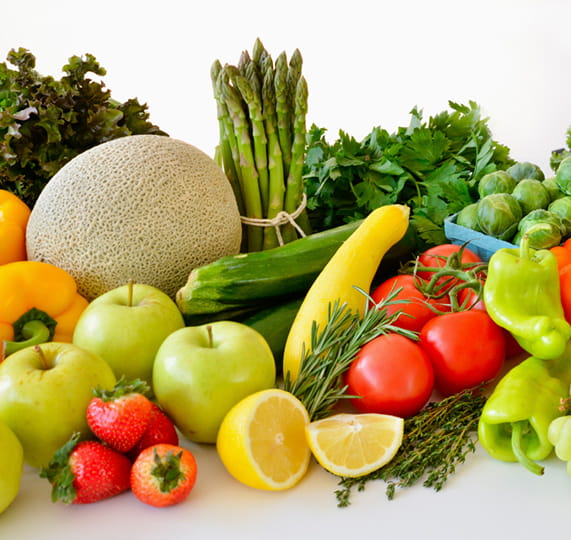What Is Food Is Medicine?
“Food is medicine” is the provision of healthy food to prevent, manage or treat specific clinical conditions in a way that is integrated within the health care sector. Patients are referred to these services by a health care provider, health care organization or health insurance plan. Preliminary evidence indicates that delivering food is medicine programs may improve health outcomes, reduce health care utilization and costs, address health disparities and reduce nutrition and food insecurity for patients living with acute or chronic diseases.
Food is medicine approaches commonly include:

Medically Tailored Meals
Medically tailored meals (MTMs) are designed to assist with food insecurity and the specific needs of those with complex medical conditions. MTMs provide home delivery of fully prepared meals designed by a registered dietitian nutritionist to meet the specific dietary needs of an individual living with one or more health conditions. This intervention has been primarily considered for patients living with acute exacerbations of chronic conditions who may be unable to shop for or prepare meals for themselves.
Medically Tailored Groceries
Medically tailored groceries (MTGs) include a selection of groceries, such as vegetables, fruits, grains, beans, lean proteins and/or dairy prescribed by a registered dietitian nutritionist for a broader range of patients—those with diet-related acute and chronic conditions who can shop or pick up and prepare food at home. MTGs are part of a treatment plan for an individual with a defined medical diagnosis, confirmed by a health care provider or health plan. Food sourcing varies across programs and often incorporates community partners.


Healthy Food Prescription Programs
Food prescription programs (also called produce prescriptions) enable patients to more easily follow clinicians’ advice regarding healthy eating. In these programs, clinicians "prescribe" fruits and vegetables, or other healthy foods, to at-risk patients in the form of coupons or vouchers for local farmers’ markets, grocery stores or mobile markets. These programs can be accompanied by nutrition education and/or counseling and can be paired with services provided by registered dietitians or community health workers. Food prescription programs are typically offered to people living with health conditions that are exacerbated by unhealthy food and who have nutrition and/or food insecurity.